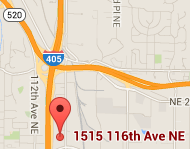I am frequently asked about the indications for use of “nightguards” and what type of nightguard I recommend. A few years ago I was asked this question during a presentation I was making at the Washington State Dental Hygiene Association annual meeting. My tongue and cheek response was that in most cases the #1 indication for any nightguard is that the patient does not have one and #2 is that the patient’s insurance would pay for it. Although my attempt at humor was not the response they expected, the truth of my statement was acknowledged by most in the room.
In most dental offices when a nightguard is recommended the patient assumes this follows a careful evaluation and diagnosis of the problem which the nightguard is designed to address. For example, night guards are frequently recommended to prevent excessive enamel wear due to nighttime tooth grinding (bruxism). Bruxism is typically diagnosed by observing wear on the chewing surfaces of patient’s teeth at the time of examination. Bruxism may be confirmed as a current activity by the patient’s bed partner or a parent observing a sleeping child. However, tooth wear alone is not an indication for a nightguard because it could have occurred in the past and the patient may not presently be actively bruxing. Wear on the teeth may also be due to dental erosion, a chemical process which is unaffected by nightguard wear. Confirmation that a patient is currently bruxing requires direct observation either in the home setting or overnight sleep study at a medical sleep center. Therefore, as always, proper diagnosis is an important key factor prior to recommending any treatment, including a nightguard.
Nightguards can adversely affect your health. Be sure you understand why a nightguard is being recommended for you and what adverse effects to look out for. Even when clearly indicated, prescriptions for nightguard designs are rarely based upon objective evaluations of patients individualized jaw muscle physiology and how the proposed nightguard will ultimately affect jaw function. Will it be a good effect or a bad effect? Improperly designed nightguards may result in increased tooth grinding and clenching, inadvertent tooth movement, tooth pain, jaw muscle pain, temporomandibular joint pain and dysfunction; and neck pain. Patients often seek treatment for these conditions from other providers without realizing the nightguard is actually causing or exacerbating the new complaint.
Accepting the recommendation for nightguard wear should not be a casual decision. If a nightguard is recommended for you, ask your dentist to explain why they believe it will benefit you. Also, be sure you have a thorough understanding of the benefits you may expect and what the possible adverse side effects could be.
Pleasant Dreams!

